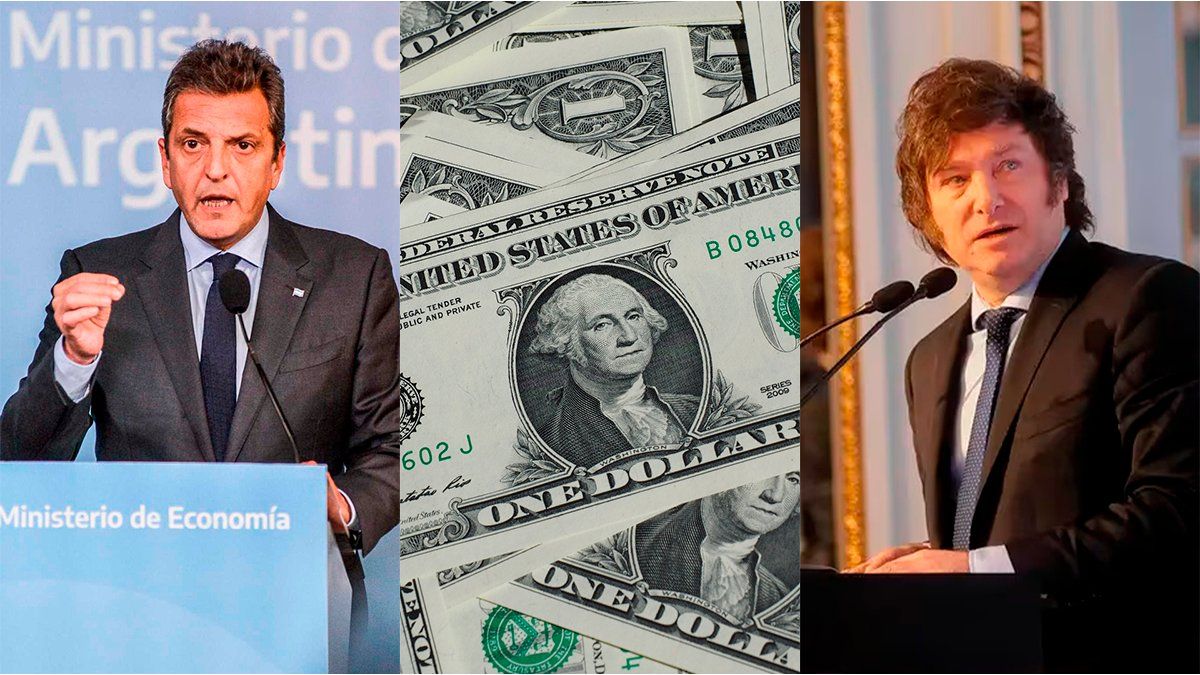The market was surprised by the result of Sunday’s election, since, although the confirmation of the runoff between Sergio Massa and Javier Milei is pending, the order of the candidates in the final result was the same as expected, with the ruling party coming out first and the libertarian, second. This is stated in a report from the consulting firm Romano Group that indicates that “volatility, with deterioration of the macro, will continue” and anticipates that there will be an acceleration of inflation and dollarization pressure with greater impetus during the days before the elections.
Thus, the report indicates that The primary fiscal deficit will be around 3.5% this year (with its respective monetization) and at the exchange rate level, the main challenge comes from the official exchange rate, which is at similar values at the end of 2015. when the government of Mauricio Macri was forced to devalue the currency by almost 33% with year-on-year inflation of around 28%.
Romano Group points out that, currently, the official dollar is further behind than before the PASO, where the day after it was decided to increase that dollar by 22%, to $350, and they warn that “the signals that can start showing the ruling party if we want to dissipate the volatility that the economy will have to face heading into December.”
They warn that net reserves are on their way to being negative at US$11,000 million, the debt of importers reaches US$53,000 million, the fiscal and quasi-fiscal deficit above 10% of the product, added to the fact that outside There is no vocation to lend to Argentina with a rate in the order of 5%, they would only enhance a scenario of inflationary spiralization in the near future.
When does the adjustment start?
The work states that “The question is whether the adjustment will be started now by the ruling party or if it will be delayed based on the November election result.“. They believe that “possibly the government is trying to delay the economic situation as much as possible in order to maintain power, that is, to avoid any type of adjustment.” But, on the other hand, they point out that this brings with it greater restrictions on financial operations, to imports, to financial dollars and that, possibly, we will see a Central Bank (BCRA) very active to maintain the official exchange rate at these levels from the systematic sale of futures contracts, especially, days before the ballot. .
They foresee, however, that the macro deterioration with greater imbalances will inevitably have to be faced starting in December. And they describe that “in a scenario in which Massa is elected, he would appear to have the necessary muscle to make the fiscal adjustments and honesty of relative prices of the macroeconomy.”
However, they again mention that A large part of society is not willing to give up the well-being that the State provides them, but the problem is that Argentina has no room to configure gradual fiscal paths, given that inflation is cruising at 138%.but short-term projections place it on the order of 200%.
Massa or Milei: two possible countries after the runoff
“The ruling party will try to use all channels to obtain dollarswhether multilateral organizations, China, exporters (via splits), etc.”, they foresee. And they warn that it is important to contemplate that any shortcut that the minister/candidate Massa wants to take could impact the inheritance to be assumed by the presidential candidate Sergio Massa.
On the other hand, they point out that the electoral result strongly moderates the possibility of dollarization of the Argentine economy, as Milei proposes, in the coming months, considering that Argentina does not have dollars and the need for a high exchange rate to dollarize were prevailing. .
They explain that, “Even if Milei won in November, having 14% of support in the Chamber of Deputies and 11% in the Senate, places him in a place of extreme weakness to face such a structural reform. That is why the “panic” dollar of $1,200 dissipated as the hours passed after the election results.
However, Milei’s chances of winning the runoff are still latent, and therefore, they point out that it will be necessary to see what role he decides to take regarding the signals he gives to the market. “If she takes a more focused stance, focusing her speech on fiscal consolidation and toning down dollarization, possibly the market may perceive it as a more pro-market option,” she points out. Despite this, they do not fail to mention that their political weakness shaped by the primaries limits their ability to carry out the fiscal adjustment that macro demand.
Source: Ambito




